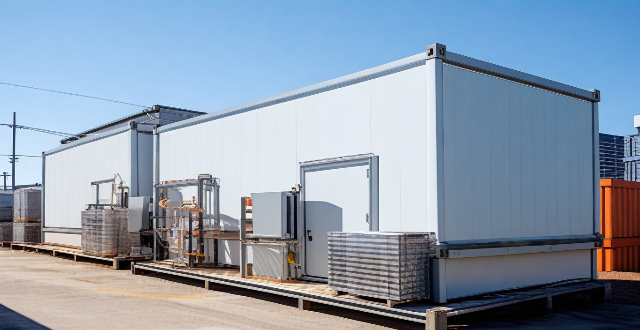Energy storage systems are crucial for sustainable development, improving renewable energy efficiency, enhancing grid stability, supporting the shift to electric vehicles, promoting decentralization and local production, mitigating environmental impact, and offering economic benefits. They help balance supply and demand, reduce waste, even out demand spikes, support EV infrastructure, enable microgrids, reduce fossil fuel dependency, increase energy efficiency, save costs, and create jobs. Energy storage systems are a key component in the transition to a low-carbon future.

Energy Storage Systems and Sustainable Development
Energy storage systems play a crucial role in sustainable development by addressing several key challenges related to energy production, consumption, and environmental impact. Here's how:
Improving Renewable Energy Efficiency
- Balancing Supply and Demand: Renewable sources like solar and wind are intermittent, meaning they don't generate power consistently. Energy storage systems can store excess energy produced during peak generation times and release it when production is low, ensuring a steady supply.
- Reducing Waste: Without storage, surplus energy generated from renewables often goes unused, leading to waste. Storing this energy prevents this loss and increases the overall efficiency of renewable energy systems.
Enhancing Grid Stability and Reliability
- Load Leveling: Energy storage can help even out demand spikes, reducing the strain on grid infrastructure and preventing blackouts or brownouts.
- Frequency Regulation: By quickly discharging stored energy, these systems can help maintain a constant electrical frequency, which is essential for grid stability.
Facilitating the Shift to Electric Vehicles (EVs)
- Supporting EV Infrastructure: Energy storage solutions, like batteries, are integral to the development of charging stations for electric vehicles.
- Reducing Strain on the Grid: Smart energy storage can charge EVs during off-peak hours, reducing the need for additional generating capacity.
Promoting Decentralization and Local Production
- Microgrids: Energy storage enables the creation of microgrids, allowing communities or businesses to produce and consume their own energy independently.
- Resilience: In the event of grid failure, stored energy can power critical infrastructure, increasing a community's resilience to disasters.
Mitigating Environmental Impact
- Reducing Fossil Fuel Dependency: By making renewable energy more viable, energy storage systems reduce our reliance on fossil fuels, contributing to a reduction in greenhouse gas emissions.
- Increasing Energy Efficiency: Storing energy for later use means less energy wasted, which is particularly important for maximizing the potential of clean energy sources.
Economic Benefits
- Cost Savings: Long-term, energy storage can reduce operating costs for both consumers and producers by optimizing energy use and reducing the need for new infrastructure.
- Job Creation: The growth in energy storage technology leads to new industries and job opportunities, contributing to economic development.
In conclusion, energy storage systems are not only beneficial for enhancing the effectiveness of renewable energy sources but also for promoting a more stable, reliable, and sustainable energy ecosystem. They are a critical component in the transition toward a low-carbon future.